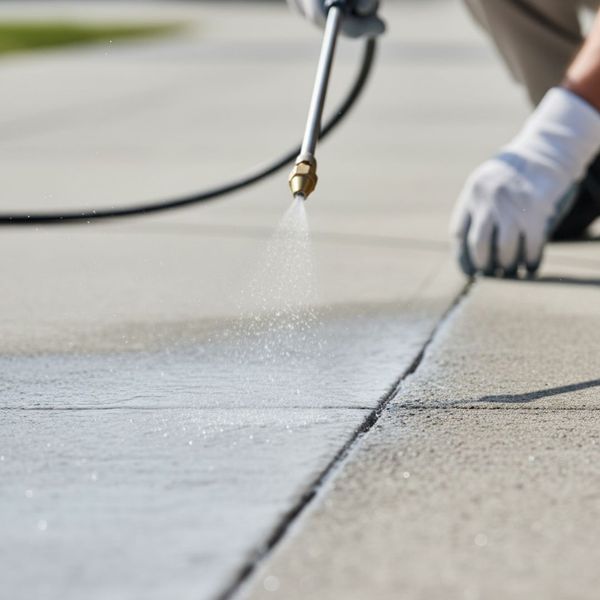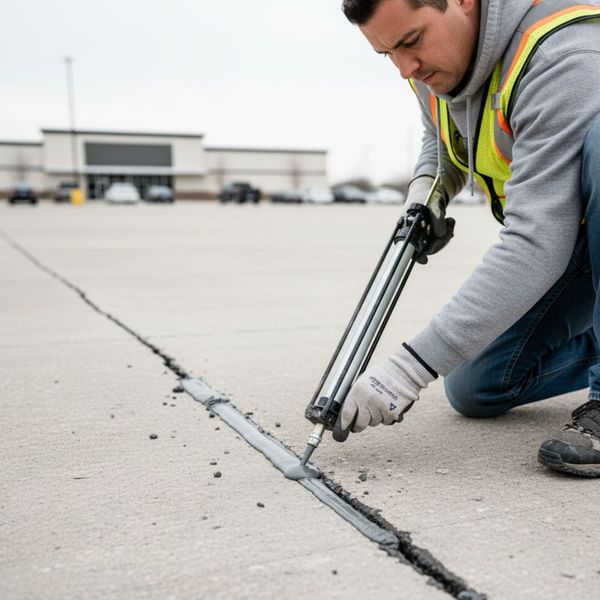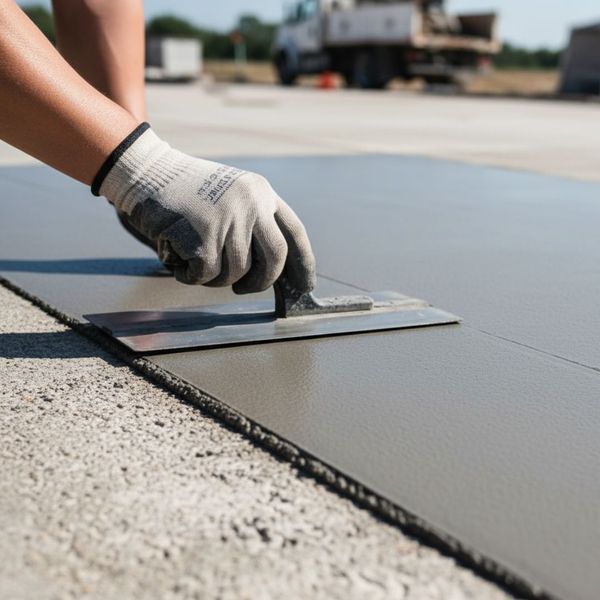In the Upper East Tennessee region, winter safety often relies on de-icing salts to keep our commercial properties and sidewalks safe from slick ice. While essential for preventing slips and falls, these salts, particularly chloride-based options, are corrosive and can severely damage concrete over time. At Bracken Paving, we specialize in comprehensive parking lot maintenance and know that preparation is key. We want to help you understand the risks and implement proactive measures to protect your investment before the first major freeze hits.
Essential Parking Lot Maintenance: How to Protect Your Concrete from the Harmful Effects of Winter Salt
Guarding Your Concrete Against Winter Salt Damage

The Role of High-Quality Sealants
Applying a high-quality, penetrating sealant is the first line of defense we always recommend for concrete protection. Sealants create a barrier that prevents the salt-laden water from soaking into the concrete's porous structure. This deep penetration stops the salt's chemical reaction from causing the surface to pit, flake, or spall. For long-term protection, we advise reapplying sealants regularly as part of your overall parking lot maintenance schedule.

Selecting Safer De-Icing Alternatives
Not all de-icers are created equal when it comes to concrete safety. We encourage our clients to avoid common rock salt (sodium chloride) whenever possible, as it is highly corrosive. Safer alternatives like calcium magnesium acetate (CMA) or potassium chloride are gentler on concrete surfaces. While they may cost slightly more, the savings on future repair costs make them a worthwhile investment in preventative parking lot maintenance.
Immediate Post-Winter Cleaning
Once the snow and ice season concludes, it is critical to flush away residual salt buildup as quickly as possible. The longer salt remains on the concrete surface, the more opportunity it has to cause damage. We recommend using a high-pressure washer or simply a hose and stiff broom to thoroughly rinse all parking lot surfaces. This step is a simple yet vital part of springtime parking lot maintenance and repair prevention.

Proper Drainage and Moisture Control
Salt damage is accelerated when water sits on the concrete surface, allowing the salt to remain in constant contact and seep deeper. Ensuring that your parking lot and surrounding areas have proper grading and effective drainage is key to minimizing exposure. Our experts evaluate drainage during our assessments, as eliminating standing water is fundamental to effective, year-round parking lot maintenance and prolonging pavement life.

Timely Crack and Joint Repair
Existing cracks and joints are primary entry points for salt-laden water to penetrate the concrete slab. Once inside, the corrosive brine works to erode the interior structure, accelerating damage. We stress the importance of immediate crack filling and joint sealing before winter arrives. By keeping the surface sealed, we contain the salt and water to the top, where it can be managed.
Incorporating Polymer Overlays
For concrete surfaces that have already experienced minor damage, a polymer concrete overlay can provide a protective and restorative layer. This involves applying a thin, durable cementitious material mixed with special polymers to resurface the area. This approach, which we utilize in our more advanced parking lot maintenance plans, renews the appearance and provides a fresh, salt-resistant surface without requiring a complete tear-out.
Contact us today
At Bracken Paving, our goal is to help you maintain a safe, professional, and long-lasting commercial property. Protecting your concrete from corrosive winter salts is an essential component of comprehensive parking lot maintenance. We pride ourselves on providing the expert knowledge and services necessary to ensure your investment stands up to the Tri-Cities winter. Contact us to schedule a fall inspection or discuss a custom maintenance plan for your property.
